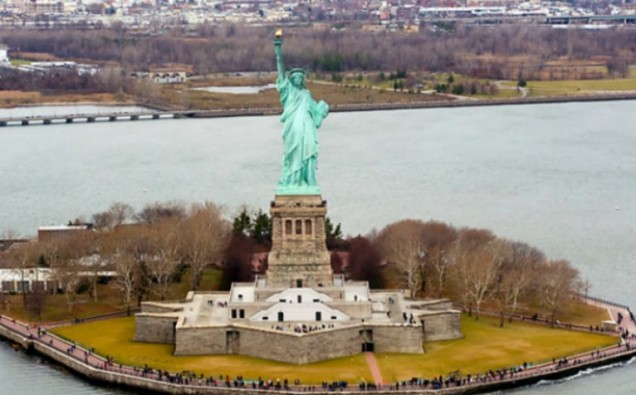
Millions of undocumented immigrants in the United States face uncertain future after the Supreme Court on Thursday deadlocked 4-4 on President Barack Obama’s plan that would have allowed those with no criminal record to live in America with temporary work authorization and some other benefits.
Obama’s executive action plan on averting the possibility of deportation for illegal immigrants, announced in 2014, was challenged by more than two dozen states, and faced a stiff Republican opposition on the Capitol Hill. A federal court ruling in early 2015 stopped its enforcement.
The number of immigrants who would have benefited from the program is estimated to be four million.
Now the split Supreme Court verdict just six months ahead of conclusion of Obama presidency effectively means an end the Obama White House’s immigration relief effort. Critics see the failure of immigration moves as another reflection of dysfunction and absence of compromise and bipartisanship in Washington on national issues.
The stalemate on White House move comes in the midst of a highly charged political debate on immigration reforms in the run up to November 8 election.
Both parties remain poles apart on the question of immigration
Democratic presidential aspirant Hillary Clinton has vowed to carry forward Obama’s plans while Republican Donald Trump has vowed to expel immigrants and also build a wall along the Mexican border.
Obama explained the rationale of his executive actions while terming the stalemate as frustrating.
“Four years ago, we announced that those who are our lowest priorities for enforcement — diligent, patriotic young DREAMers who grew up pledging allegiance to our flag — should be able to apply to work here and study here and pay their taxes here. More than 730,000 lives have been changed as a result. These are students, they’re teachers, they’re doctors, they’re lawyers. They’re Americans in every way but on paper. And fortunately, today’s decision does not affect this policy. It does not affect the existing DREAMers.
Two years ago, we announced a similar, expanded approach for others who are also low priorities for enforcement. We said that if you’ve been in America for more than five years, with children who are American citizens or legal residents, then you, too, can come forward, get right with the law, and work in this country temporarily, without fear of deportation. “
He said both steps were the kinds of actions taken by Republican and Democratic Presidents over the past half-century.
Neither granted anybody a free pass. All they did was focus our enforcement resources — which are necessarily limited — on the highest priorities: convicted criminals, recent border crossers, and threats to our national security.
“Now, as disappointing as it was to be challenged for taking the kind of actions that other administrations have taken, the country was looking to the Supreme Court to resolve the important legal questions raised in this case. Today, the Supreme Court was unable to reach a decision.”
He also blamed Republicans for the lack of progress on immigration moves.
“This is part of the consequence of the Republican failure so far to give a fair hearing to Mr. Merrick Garland, my nominee to the Supreme Court. It means that the expanded set of common-sense deferred action policies — the ones that I announced two years ago — can’t go forward at this stage, until there is a ninth justice on the Court to break the tie.”
Meanwhile, House Speaker Paul Ryan, commenting on the SC decision, noted that “presidents don’t write laws. Congress writes laws.”












